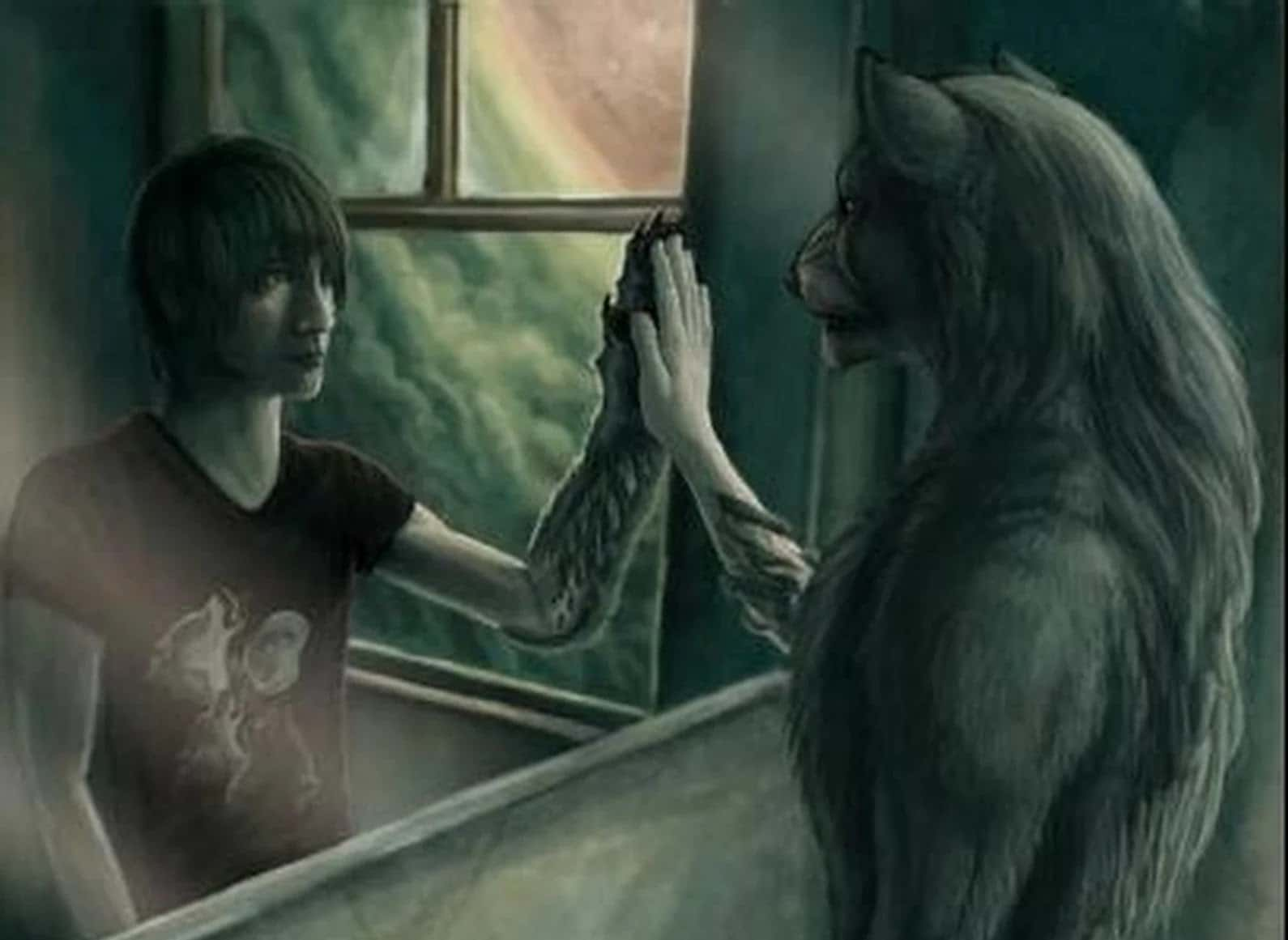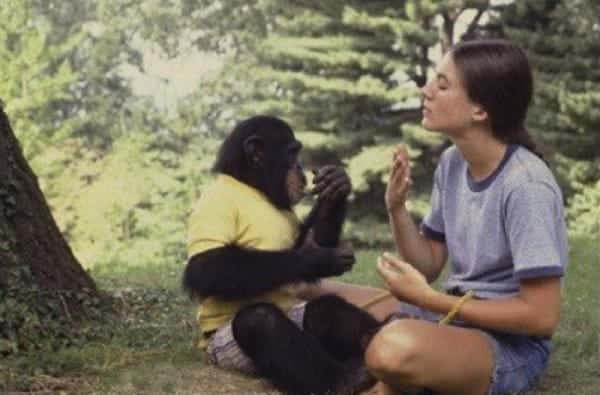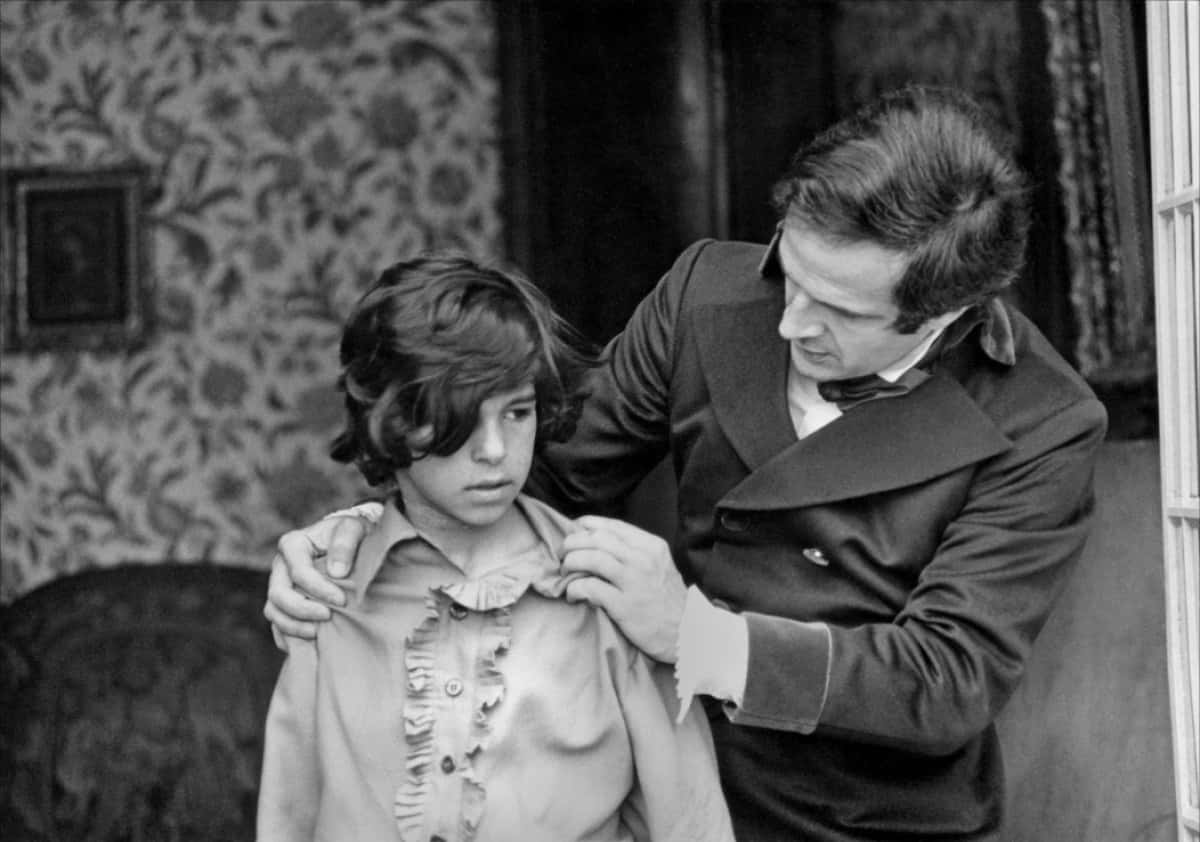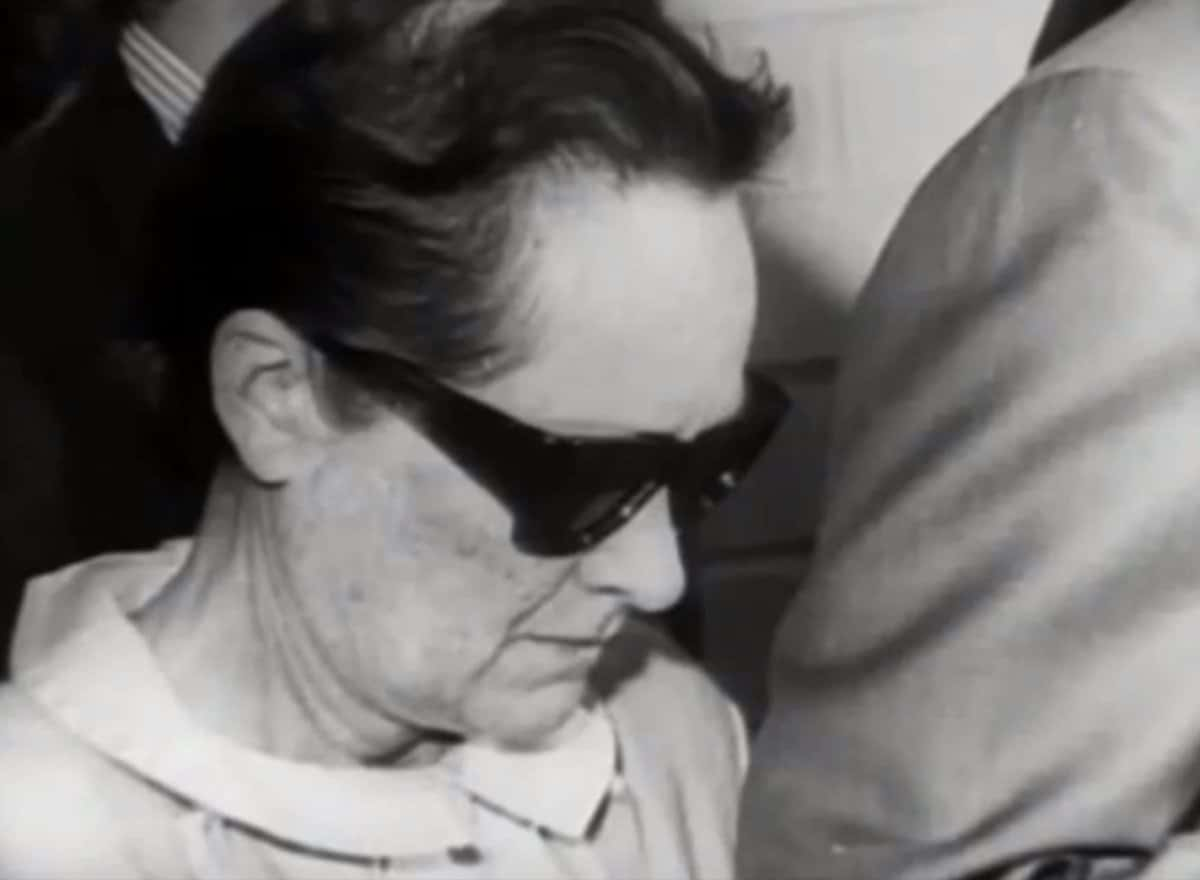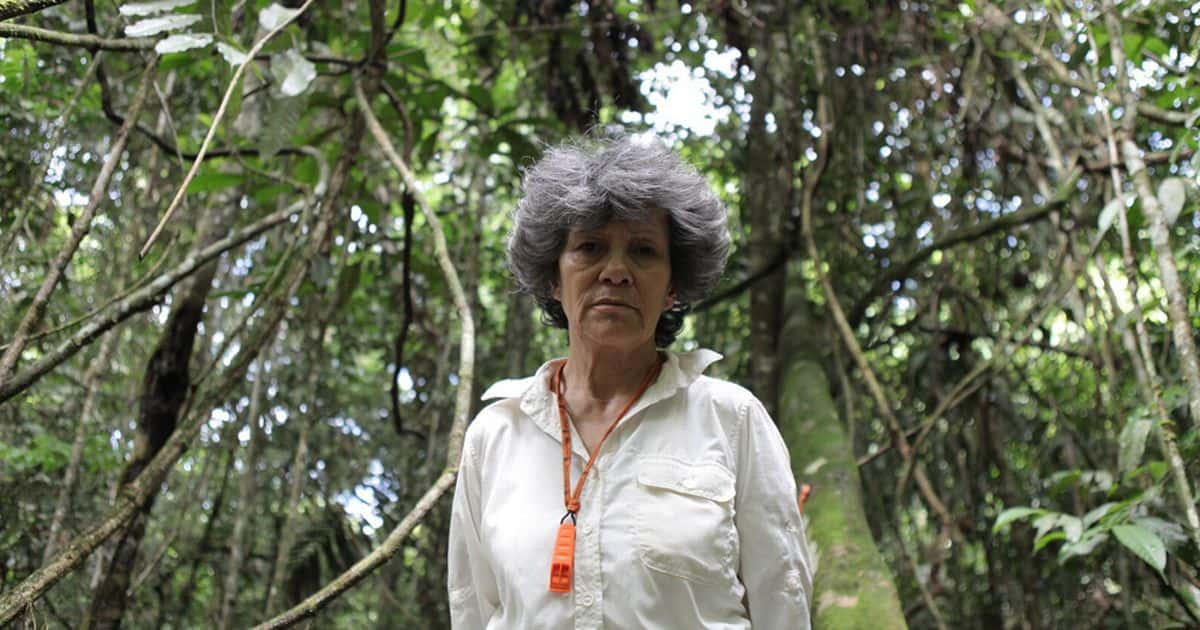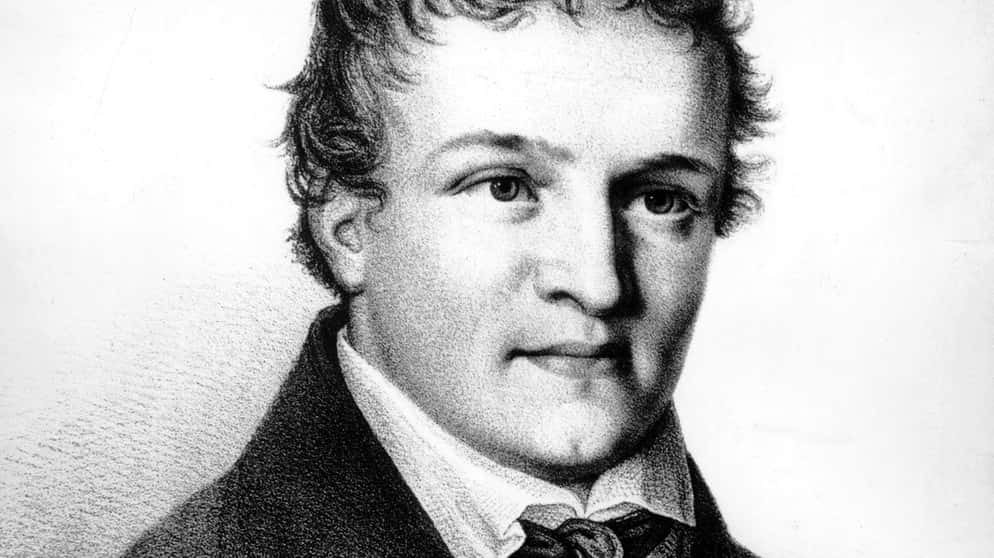"Ah, you have spirit for one so small. And such spirit is deserving of a sporting chance."—Shere Khan to Mowgli in Disney's The Jungle Book
For centuries, the public has been fascinated by stories of feral children. These girls and boys have been abandoned or neglected and often exhibit animalistic behaviors and delayed development. These reports come from all over the world with some common qualities, but the stories also change from region to region. The stories of these children are often both fascinating and heartbreaking. However, they have also provided invaluable information and sparked debate about psychology, human development, and philosophy. Read on for 44 facts about the feral children who have revealed what lies beneath the veneer of culture and society in all of us.
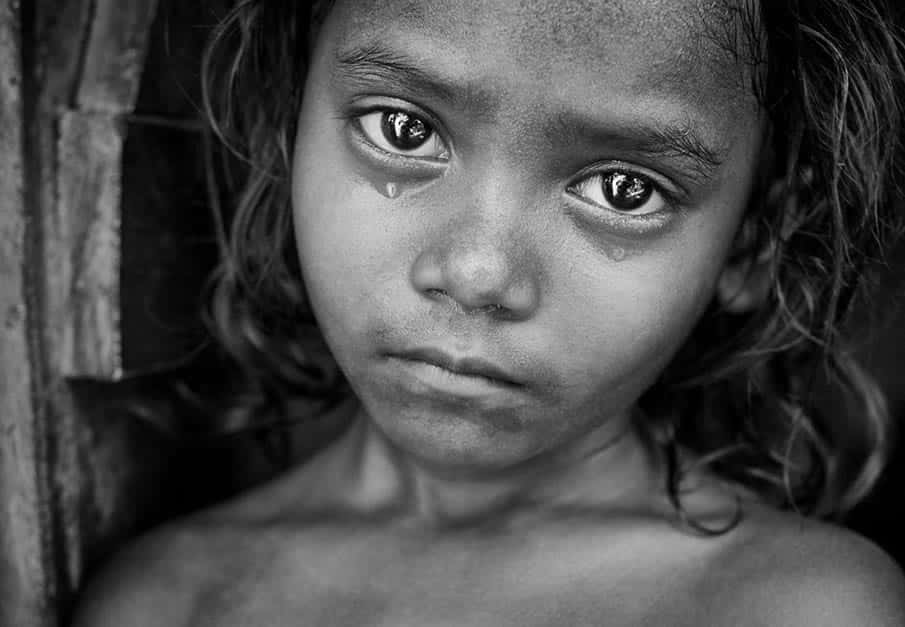 Ciencia – Salud – Tecnología - WordPress.
Ciencia – Salud – Tecnología - WordPress.
Feral Children Facts
44. Nature Versus Nurture
In the 1800s, a debate raged between scientists whether feral children were simply “idiots” who had no capacity to learn language or societally appropriate behavior. This was widely believed, but some scientists saw feral children as evidence for the idea that some facets of human knowledge are learned and constructed rather than inborn. This disagreement marked an early stage of the nature vs. nurture debate in scientific though.
43. The First English Report
The first known English-language story of a feral child outside of mythology was John of Liege. John grew up in the wilderness of Belgium after fleeing his home at the age of five to escape a religious war. He survived in the wilderness for 16 years, not being found until the age of 21. According to an account made in 1644, John had a heightened sense of smell and had forgotten any language he knew. However, according to this account, John did later learn to speak again—that seems like it puts the "idiot" theory to rest pretty much right away, but what do I know?
42. Genie
Perhaps the most famous case of a feral child in the United States was Genie, who was subjected to brutal neglect and starved of human contact by her abusive father for 13 years. She was not spoken to or allowed to speak during that time and thus had almost no language abilities. Much of her mental and physical development had been stalled to a toddler stage. Her case became extremely important to the modern understanding of child development.
41. An Audience With The King
In 1724, a 12-year-old child was discovered in the woods in Germany and named Wild Peter. He would not speak, and would not eat anything but the vegetables he would have had access to in the wild. The story was so intriguing to European society that King George I of England sent for Wild Peter to see the legend for himself.
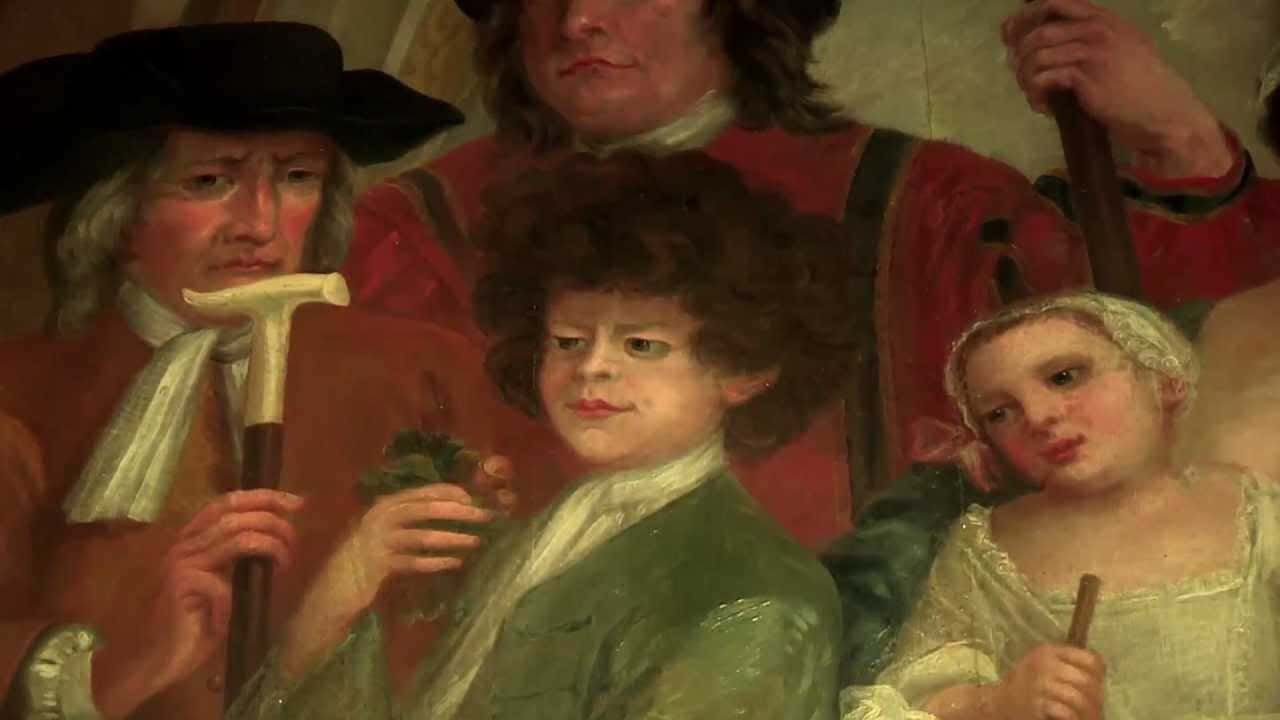 YouTube
YouTube
40. Homo Ferens
The discovery of feral children was a puzzling question to early European philosophers, who found it difficult to account for their inability to master language and their animalistic behavior after they were reintroduced to society. Some theorized feral children were part of a different species of human. Natural historian Carolus Linnaeus sorted humans into six distinct species of human, one of which was the feral man, Homo ferens. The rest of the categories were pretty racist, so it’s no surprise that the influential scientist got this one wrong.
39. The Missing Link
While some early European scientists saw feral children as a separate species of man, others saw these “wild humans” as a missing evolutionary link between human and animal. Man, folks were pretty off on this one for a while.
38. The Amala and Kamala Hoax
When orphanage priest Joseph Amrito Lal Singh claimed to have found the young sisters Amala and Kamala in a wolf den, their story became highly publicized around the world. However, both anthropologists and doctors had trouble believing the priest’s version of events. Finally, a French surgeon revealed that the entire story was a hoax. Amala and Kamala had neuro-developmental disorders and were presented as feral children to raise money for the orphanage in which they lived.
37. Around The World
Stories of feral children have come from many diverse places around the world, but the largest number of these stories have come from India, including some of the most high-profile cases like Amala and Kamala.
36. Scientific Study
Since the 18th century, psychologists and doctors have used feral children as case studies of how much human behavior and knowledge is learned and how much is biologically inborn.

History's most fascinating stories and darkest secrets, delivered to your inbox daily.
35. A Sadly Common Story
There have been approximately 4,000 reported cases of feral children with at least somewhat reliable documentation. Reports of feral children are unusually common around the world.
34. Romulus and Remus
Stories of children raised by animals date back as far as ancient Rome. Romulus and Remus, the mythical twin founders of Rome, were said to be raised by a she-wolf.
33. Living With Dogs
In Russia and Ukraine, there were three cases of children living with stray dogs within the last 30 years. Ivan lived on the streets as a beggar from the age of four and became part of a pack of wild dogs; Madina, a neglected child, lived with dogs and mimicked their behavior until she was found at three years old; and Oxana Malaya lived with dogs for six years since her parents had left her outside at two years old and she had sought out the strays for warmth.
32. Victor of Aveyron
In 1800, a 12-year-old boy was found wandering the woods in France. He was entirely mute, refused any human touch, and ignored human contact. French officials considered him an “imbecile,” but Dr. Jean-Marc Gaspard Itard took him in to see if he could teach the boy language. He worked with the boy, eventually named Victor, or Victor of Aveyron, for several years, and the child soon bathed, wore clothes, and even showed empathy. However, Itard was disappointed with his lack of progress in language. By the time of his death, Victor had never spoken a complete sentence.
31. The Dani Effect
After feral child Dani, who was discovered in circumstances of parental neglect and adopted by a new family, became the subject of a Pulitzer Prize winning story in the Tampa Bay Times, inquiries about adoptions quadrupled in the first week after the story broke.
30. The Romantic Image
Around the turn of the century, feral children were looked upon through a romanticized lens because they were thought to be in a pure and untainted natural state, leading to the creation of such famous fictional feral children as Mowgli and Tarzan around that time.
29. The Changing Story
Experts believe the old stories of wild children are a thing of the past, as it would be unlikely for a child to disappear into the forest to be raised by animals except in the most remote regions of the globe. However, feral children still exist in the modern world, yet now it is almost always due to unfathomable child neglect, even in wealthy, industrialized places.
 Appalachian Today - Appalachian State University
Appalachian Today - Appalachian State University
28. The Wolf-Boys
In India, several feral “wolf-boys” were reported in the 19th century by soldiers and naturalists residing in or visiting the regions where the children were found, many in the same district of Sultanpur. In these cases, they reported the wolves that were prevalent in the area would sometimes take children and raise them. These wolf-boys would reportedly be found in wolf dens or with a wolf family. It was said that they usually walked on all fours and refused cooked food and clothing.
27. Putting The Theory To The Test
Although it was commonly believed a child could not learn language after the “critical period,” AKA puberty, the feral child Genie put this to the test after being isolated from language until the age of 13. She actually displayed an ability to learn language, but never mastered grammatical structure. Scientists now know that the critical period is crucial for learning to speak in complete sentences.
26. Coincidental Timing
The discovery of Genie in 1970 happened to coincide with the release of The Wild Child, a Francois Truffaut film about the life of Victor of Aveyron, and his doctor’s attempt to teach him language and behavior. The film helped to renew interest in feral children and inspired Genie’s caretakers to attempt to rehabilitate her.
25. Left Brain Language
Genie’s inability to master language was similar to adults who have had an extensive left-brain stroke. These stroke patients usually leave out prepositions and articles and have trouble forming words. However, Genie’s issues with language were more extensive, especially as she seemed to have no sense of self and would use pronouns like “I,” “me,” and “you” interchangeably.
24. Wild Peter Or Just Peter?
Although Wild Peter was a celebrated feral child at the time of his discovery, he may not have been as a wild as the scholars of the time believed him to be. Some scholars later pointed out that he showed signs of recent human interaction. Parts of his body were pale rather than uniformly tanned, suggesting he had worn clothes not long before his discovery.
23. Assumptions of Autism
When social workers first saw Genie, they assumed she was an autistic child. As they examined her further, they discovered her case was much more extreme, as she could not talk, fully extend her arms, fully focus her eyes, or easily chew or swallow due to her isolation and neglect.
22. Modern Wolf-Children
In the last century, almost 50 cases of wolf-children, supposedly raised by wolves, have been reported in India, but these claims have been questioned by experts. As late as the 1950s, there were several high-profile cases involving children raised by wolves in the country.
21. Friends With Monkeys
There are approximately 450 cases of feral children that involve interaction with different animals, though not all of these children were necessarily raised by these creatures. In particular, stories of feral children interacting with monkeys are common.
20. Helen Keller
Some experts compare cases of feral children like Genie and Victor of Aveyron to Helen Keller, as Keller was also socially isolated for several years due to her blindness and deafness, though to a lesser degree than Genie and Victor. Keller also had difficulty understanding sentences when her instruction began under Anne Sullivan. However, Keller was raised in a normal social environment before her illness and was taught language again starting at the age of seven. This allowed Keller to recover from her isolation more easily than most feral children do, as many have histories of abuse and neglect and were not found or taught until a later age.
19. Fleeing Back To The Wild
Rochom P'ngieng was discovered in the Cambodian jungle in 2007. A family claimed her as their long-lost daughter who disappeared into the jungle 18 years earlier, and she was reunited with that family. It soon became clear Rochom was having trouble integrating back into society. After three years back with her family, she stripped off her clothes and disappeared. She was later found in a latrine. She tried to escape back into the jungle on several more occasions.
18. Regression
Although Genie showed significant improvement in her development and language skills for her circumstances, the National Institute of Mental Health ended the grant that supported her study and care after four years. Genie was sent into foster care, some of it abusive. Tragically, she regressed in her development and never regained her ability to speak.
17. The Feral Hoaxes
Though it does actually occur on very rare occasions, most cases of wild feral children have been disproven over time, attributing their “wild” qualities to other factors and discrediting stories of human children raised by animals. Modern scholars believe many reported interactions with wild children are exaggerated or entirely faked.
16. Intelligence and Language
Despite Genie’s lack of language skills, her caretakers noticed it did not affect other areas of her intellect, and she performed well on certain intelligence tests. Susan Curtiss, a member of the research team, explained, “Language and thought are distinct from each other. For many of us, our thoughts are verbally encoded. For Genie, her thoughts were virtually never verbally encoded, but there are many ways to think. She was smart… She had other signs of intelligence. The lights were on.”
15. Selective Senses
When Victor of Aveyron was first brought in from the wild, he experienced the world in a selective way. He was able to hear small noises like a cracking nut from far away, but he had no reaction to a pistol being fired close to his ear. He was also seemingly oblivious to heat and cold; he was able to walk naked through freezing weather and dip his hands in boiling water with no apparent reaction.
14. Wild Ray?
In 2011, a teenager named Ray appeared at a German police station claiming to have lived alone in the wild for the last several years. He claimed to not know his identity, but he could speak both German and English and seemed to be in good health. However, the police soon discovered he was actually a 21-year-old man from the Netherlands who quit his job and styled himself as a feral child to alleviate his boredom. After his discovery, he probably wished he had stuck to crossword puzzles.

13. Genie’s Lawsuit
In 1979, after the rehabilitation efforts for Genie had already ended, her mother sued Genie’s caretakers and the hospital where they had worked. She accused them of exploiting Genie for prestige and profit.
12. Stories in Pictures
Although Genie never learned to speak in full sentences, she was able to tell complex stories using pictures. Her ability to create narratives and understand language was separate from her grasp of grammar.
11. How Much Can You Be Raised By Monkeys?
In 1991, John Ssebunya was found in the wild in Uganda after living in the woods for at least two years. A primatologist was asked to look into the claims that Ssebunya had been raised by monkeys, and he determined the child had likely spent time with vervet monkeys who he followed and scavenged food from. He was not suckled or raised by the monkeys as legends of feral children claim, but the animals did probably tolerate his presence.
10. Defying Authority
When Dr. Itard took on Victor of Aveyron in the hope that he could re-educate him, he defied his own mentor Phillippe Pinel, who had given Victor a hopeless prognosis. At the time, Itard was only 25 years old with no specialized training, and he devoted five years of his life to educating Victor.
9. Longing For The Familiar
While Victor was under Itard’s care, living a mostly indoor existence, Itard noticed he seemed to long to be back outside. He often seemed vacant, but paid much more attention in situations that were familiar to him. Itard wrote, “[W]hen watched inside his own room he was seen swaying with a tiresome monotony, turning his eyes constantly towards the window.... If at such a time a stormy wind chanced to blow, if the sun behind the clouds showed itself suddenly, ... there were loud bursts of laughter, an almost convulsive joy, during which all his movements backwards and forwards very much resembled a kind of leap he would like to take ... [toward] the garden.”
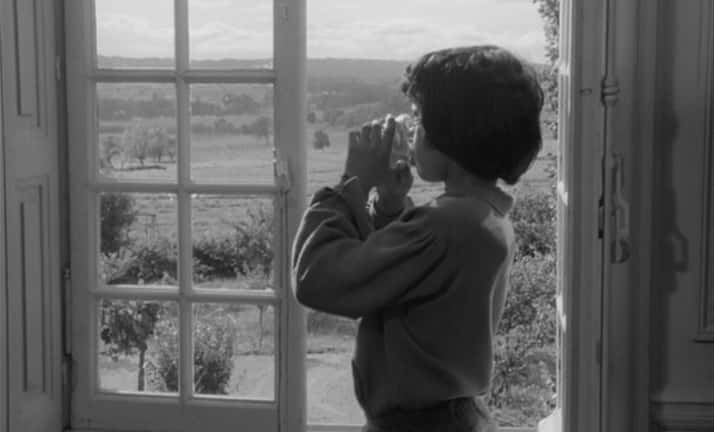 Cinematic Scribblings - WordPress
Cinematic Scribblings - WordPress
8. Jungle Girl’s Identity Confusion
Although a family had already claimed Cambodian Jungle Girl Rochom P'ngieng as a long-lost daughter, a Vietnamese man came forward several years later and claimed the girl was in fact his lost daughter. He claimed his daughter was mentally ill and had disappeared in 2006, only a year before Jungle Girl’s discovery, after suffering a breakdown. The Cambodian family who had taken her in already admitted that the man did bear a strong resemblance to her and was able to provide some evidence to back up his claim. The courts then had to decide which family’s version of events was most likely to be true. Was she the Cambodian girl who was lost in the jungle for 18 years or a Vietnamese woman suffering a mental breakdown?
7. Influential In Education
Dr. Itard’s methods of teaching Victor of Aveyron may not have worked as well as he had hoped, but they did have a great influence on educational philosophy and method. Itard’s work influenced the noted educator Maria Montessori to develop her method for educating regular children.
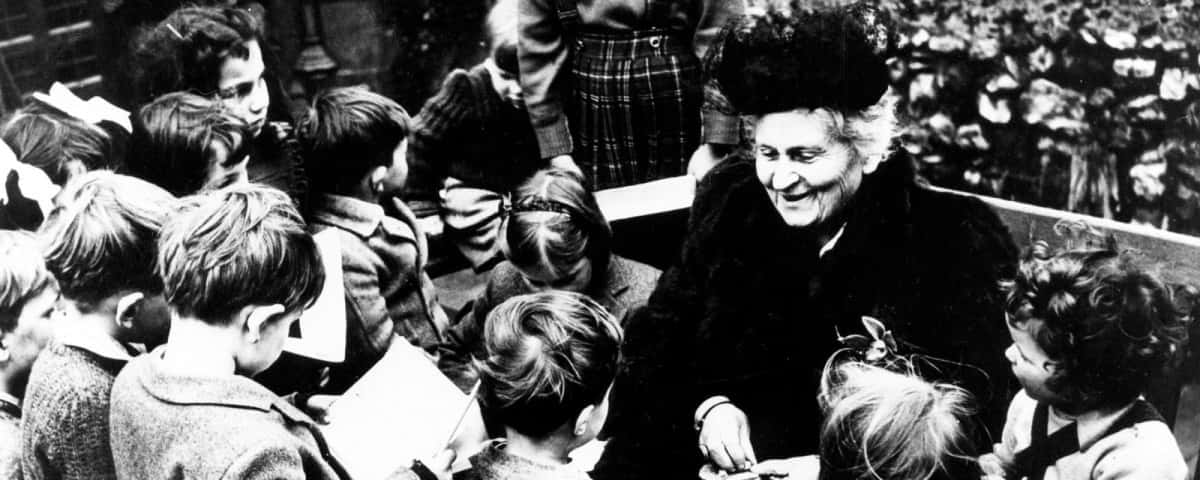 Italian Sons and Daughters of America
Italian Sons and Daughters of America
6. The Wild Girl of Champagne Or Maybe Wisconsin
In 1731, residents of a French village reported sightings of a wild girl in animal skins carrying a wooden club. Although she had all the hallmarks of the usual feral child story, her background was a bit stranger. In 1765, she told an interviewer that she lived in the forest after she escaped her kidnappers who brought her to Europe as a slave. Research suggests the girl, later named Memmie, was a Native American of the Meskwaki tribe of Wisconsin who had been brought to France. Memmie eventually learned to speak French and lived in a convent, and she was supported by rich patrons through most of her remaining life.
5. The Long Road To Re-Education
In his time with Itard, Victor made incredible progress and learned to sign and write words from memory. However, Itard was ultimately disappointed by his pupil's inability to master language completely. Victor himself began to grow frustrated and upset with his educational failures. Itard reported he would weep with frustration and go into convulsions over the procedure, and Itard employed some questionable methods to shock him back to a normal state, such as dangling him out a window to scare him with his fear of heights.
4. Accepted Into The Troop
According to the account of Marina Chapman, she was kidnapped at five years old, taken into the jungle, and abandoned. She could not find her way back home or find any sign of human habitation, but she did happen upon a group of monkeys. Allegedly, the monkeys soon accepted her into their social group, and she eventually learned to interpret what their specific noises meant.
3. Lost Memories
Chapman claims she cannot remember anything before her kidnapping and abandonment at five years old, retaining no recollection of her human family. When she was finally rescued from the jungle by hunters, she had lost the ability to speak and had to relearn it.
2. The Strange Tale of Kaspar Hauser
When Kaspar Hauser appeared in Germany, he did so with a truly shocking story; he claimed he had been confined to one room for the past 13 years, and a mysterious man brought him food and water. He carried notes that he said were from his captor, echoing his story and explaining that he was now being released to start a military career. However, some people doubted his tale because he picked up language and writing too quickly and was not pale enough to have spent his life in darkness. In 1833, he died mysteriously from a stab wound. It's still unknown whether Hauser’s story was true or some kind of complicated con.
1. The Real Mowgli
One of the most prominent cases of feral children involved one of the “wolf-boys” whose stories were so common in India. Dina Sanichar was discovered as a six-year-old boy sleeping in a cave, and he allegedly survived as part of a pack of wolves in the wild. He was brought to a missionary orphanage where the missionaries tried to teach him for several years, but he never learned to speak before his death at 34 years old. Some authors have suggested he may have been the inspiration for Rudyard Kipling’s Mowgli.
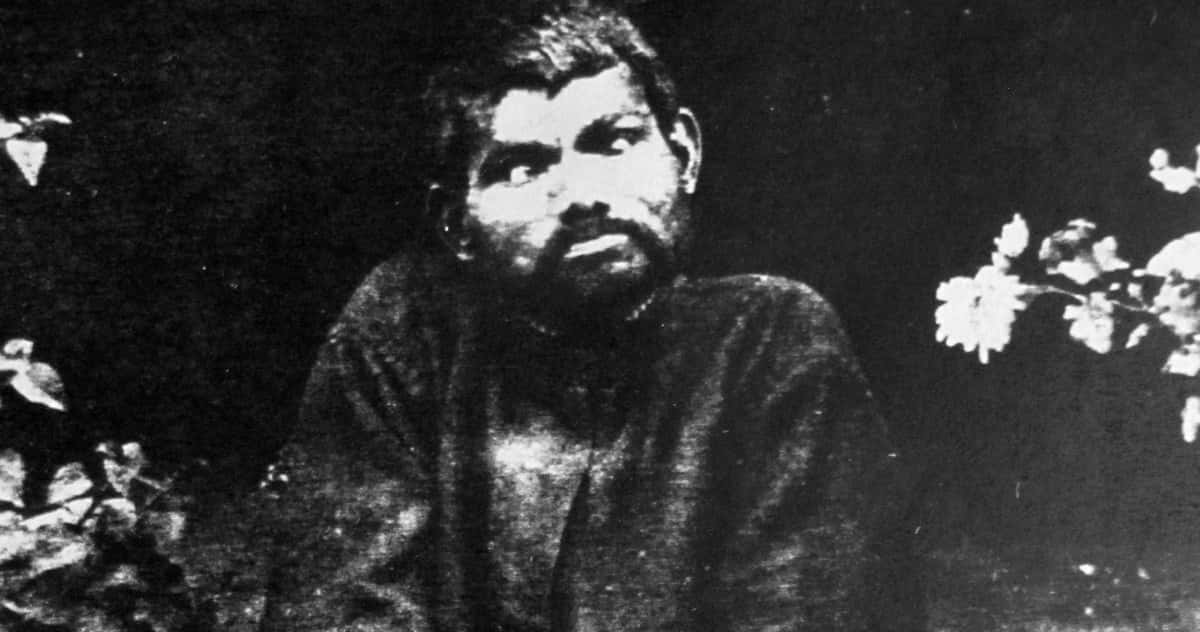 Timeline
Timeline
Sources: 1, 2, 3, 4, 5, 6, 7, 8, 9, 10, 11, 12, 13, 14, 15, 16, 17, 18, 19
















